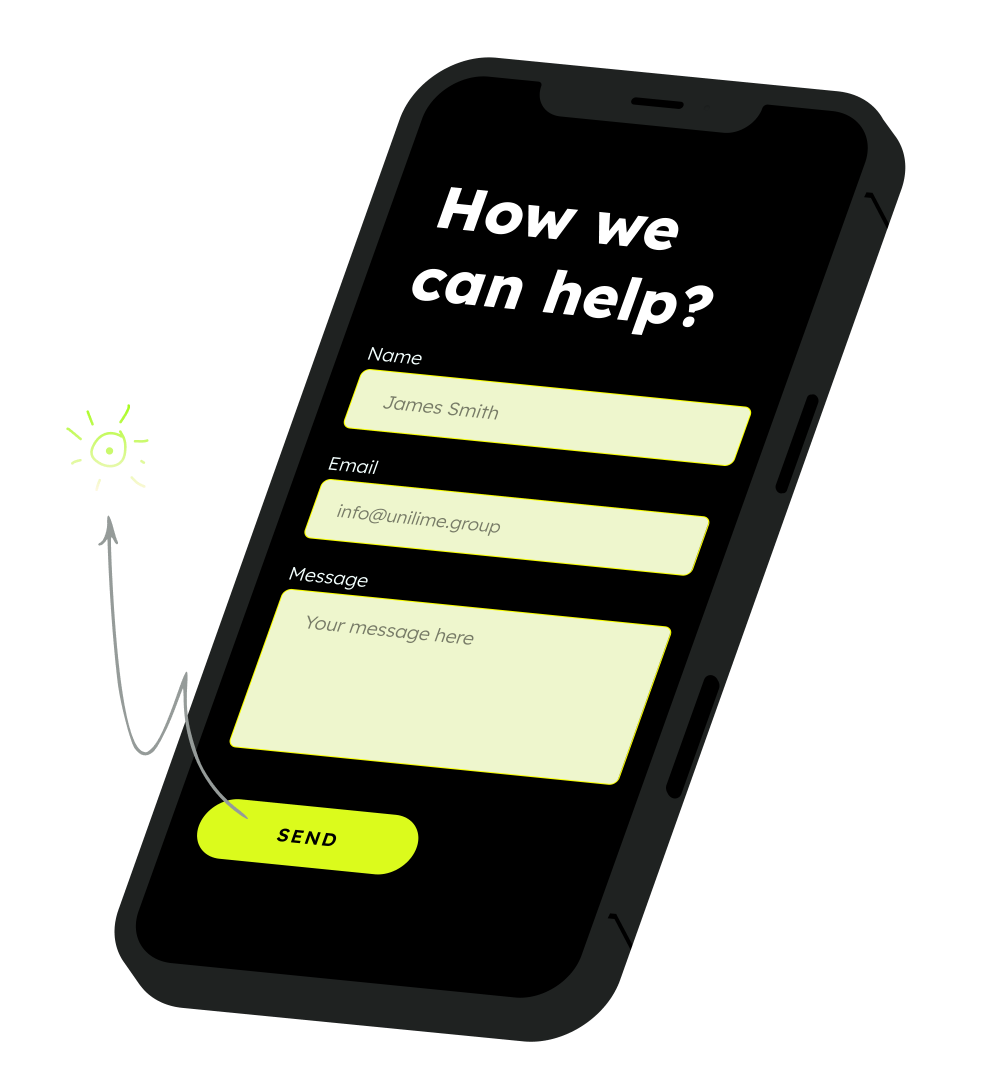SaaS Development Services
- Develop a tailored SaaS product from the ground up
- Transform a proven traditional application into SaaS
- Expand into new markets with a customized SaaS application
- Augment an existing SaaS solution

We can ensure you have a clear vision for your product. Unilime SaaS consultants provide approaches to address your specific business needs and convert your concept into a clear plan for product development.
Our SaaS design services consider both user and business demands, delivering the greatest product value to end-users.
We can build complex, multi-tenant SaaS solutions that fit your business needs from scratch, starting from business requirements analysis to SaaS deployment and ongoing support.
If you already have a product but want to upgrade your existing SaaS solution to the next level our team can help. Share your ideas and we’ll turn those into reality with ease.
We conduct layer-to-layer migration to a SaaS business model, providing a detailed risk assessment and minimizing the business impact.

CRM systems: Customer Relationship Management systems can help you improve customer relationships by centralizing customer data, interactions, and communications in one place, enhance sales efficiency by providing tools for lead management, opportunity tracking, and sales pipeline management, and create efficient marketing campaigns through segmenting customer base, targeting specific customer groups with personalized marketing messages, and track the effectiveness of marketing campaigns.
ERP systems: Enterprise Resource Planning systems offer numerous benefits for businesses across various industries, including improving efficiency by integrating and automating core functions such as finance, human resources, inventory management, supply chain management, and providing a centralized platform for sharing information and coordinating activities.
HRM systems: Human Resource Management Systems, offer numerous benefits for businesses in managing their workforce efficiently, including centralizing employee data, streamlining recruitment and onboarding, efficient time and attendance management, performance management, and feedback.


SaaS adoption has surged in recent years, with 88% of organizations using SaaS
SaaS companies experienced an average annual revenue growth rate of 46% in 2020, compared to traditional software companies.
The average SaaS company retains 78% of its customers after the first year.
The shift to remote work has accelerated SaaS adoption by 50% since the COVID-19 pandemic.
We stay up-to-date with the latest technologies to ensure the delivery of exceptional products.
Node.js
React.js
Vue.js
TypeScript
JavaScript
PHP
Python
Java
Flutter
Kotlin
AWS
Google Cloud
AWS
Google Cloud
Heroku
Kubernetes
Docker
SaaS stands for Software as a Service, which refers to a cloud-based software delivery model where applications are hosted and maintained by a third-party provider and accessed by users over the internet.
Unlike traditional software, which is installed and run on individual computers or servers, SaaS applications are hosted in the cloud and accessed through a web browser. Users typically pay a subscription fee to access the software, rather than purchasing a license upfront.
SaaS offers several benefits, including cost-effectiveness, scalability, accessibility from anywhere with an internet connection, automatic updates and maintenance, and simplified deployment and management.
SaaS providers implement robust security measures to protect customer data, including encryption, access controls, regular security audits, and compliance with industry standards and regulations. Additionally, data stored in the cloud is often more secure than data stored on local servers or devices.
When evaluating SaaS applications, consider factors such as your business requirements, budget, scalability, security and compliance needs, integration capabilities, user experience, and customer reviews. Many providers offer free trials or demos to allow you to test the software before making a decision.
